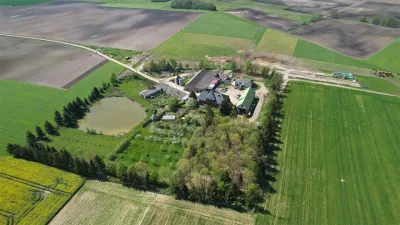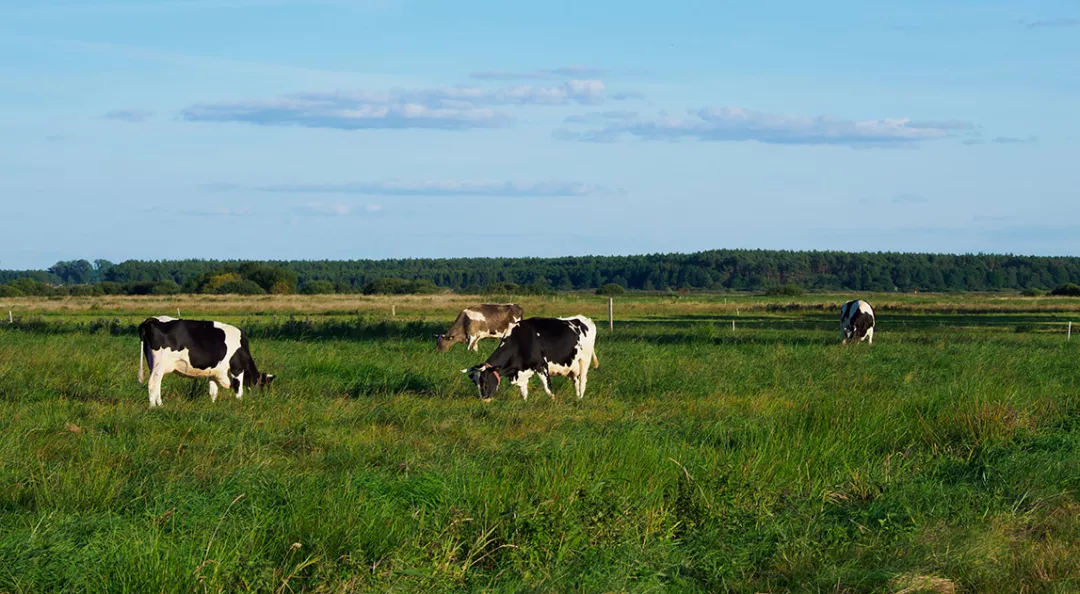General information
RDP Priority
- P4. Ecosystems management
RDP Focus Area
- 4A: Biodiversity restoration, preservation & enhancement
RDP Measure
- M11: Organic farming
Beneficiary type
- Farmer / land manager
Summary
The family farm of Mr Roman and Ms Roma Iwicki focused on the intensive and conventional cultivation of rapeseed and cereals. Over the years, the two farmers began to witness the negative impact of conventional agriculture on their farm’s biodiversity and their own health, so they decided to use CAP support to transition to organic and diversified production.
Results
- Thanks to the implementation of the project, the farm’s business model is now focused on producing organic food, which is increasingly sought after by consumers.
- As a result of the project, the farm was included in the national Polish network of demonstration farms.

Promoter
Roman Iwicki
Funding
RDP support: 419 161 (PLN)
Ressources
Documents
Good Practice Report - Converting a family farm into organic farming
(PDF – 964.64 Ko)
Context
The farm of Mr Roman and Ms Roma Iwicki covers an area of 72.75 hectares in the Lubiewo commune, in the Kuyavian-Pomeranian Voivodeship, near the Bory Tucholskie National Park in Poland. The farm was focused on intensive, conventional cultivation of rapeseed and cereals. Rapeseed is a particularly demanding crop since it is sensitive to changes in climate and very susceptible to pests. Its cultivation requires appropriate fertilisation and plant protection actions.
Roman and Roma noticed the reduction in biodiversity on their farm while experiencing health issues. Participation in conferences and training programmes about organic farming prompted them to consider converting their farm, but there was another important influence. A series of local campaigns had been raising awareness about the environment and healthy food as part of efforts to drive environmental protection and tourism investment around the Bory Tucholskie National Park.
Support from Measure 11 (organic farming) of the Polish 2014-2020 Rural Development Programme would help the farmers enhance and protect biodiversity on their farm while investing in organic cattle breeding in accordance with the latest animal welfare requirements.
Objectives
The main aims of this project were to:
- Convert their plant production to organic and establish a new livestock activity, producing certified, organic beef.
- Diversify the farm’s income through the higher prices from selling higher quality organic products.
- Reduce production costs by avoiding chemical inputs.
- Improve biodiversity on the farm.
- Establish a demonstration farm that can be a source of knowledge for other farmers.
Activities
Activities implemented included:
- Carrying out a market analysis on organic food to strategically position the farm’s plant and animal production;
- Developing an ecological activity plan for the farm, which included the development of a crop rotation plan with legumes and fertilisation using natural fertilisers.
- Gaining knowledge on how to run an organic farm through participation in seminars and by consulting advisors;
- Establishing and gradually expanding the herd of beef cattle to run the farm in a closed cycle.
- Preparing an application for organic certification.
Main results
- The expansion of agricultural production to include cattle breeding has enabled a new and promising economic activity. The farm is no longer dependent on grain market prices thanks to its diversified income.
- The farm achieved its goals in terms of organic livestock production. Their Hereford beef cattle are reproduced by insemination, which allows the farmers to obtain animals of high breeding quality. The herd has now increased to 51 animals (15 calves up to 0.5 years old, 12 heifers 0.5-2 years old, 2 bulls over one year old, and 22 sucklers over 24 months old).
- The farmers have introduced new animal breeding technologies. A monitoring system has been installed which enables them to collect data to increase the precision of production, boost labour efficiency and reduce expenditure.
- The farmers have invested in modern plant production equipment, including new generation weed removers and a solar-powered robot to support sowing.
- As a result of the project, the farm was included in the Polish national network of demonstration farms, as it isa good example and a source of practical knowledge concerning the management of organic farming systems.
Key lessons
- Thanks to the stable support of CAP funding, the farmers have been able to make a five-year commitment to implement organic farming. This kind of investment helps to mitigate market risks, enabling the farm to further invest and expand production.
- The knowledge and experience gained during this time have allowed the farmers to take a bold and positive step away from previous habits in plant production and fertilisation.
- The farmers willingly participate in training courses, conferences and study trips, which allows them to stay updated about developments in the sector.
